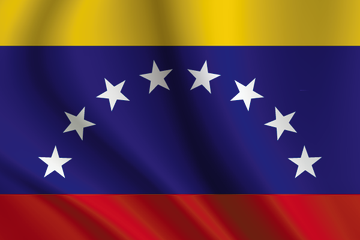In today’s increasingly interconnected and volatile world, NASUWT is committed to standing shoulder to shoulder with teachers and unions across the globe.
Our international work is grounded in the belief that the rights of teachers, the provision of quality education and the protection of democratic values are universal concerns.
Whether in the UK or overseas, we know that threats to education are often shared -and so too must be the response.
Our international engagement is rooted in the principles of solidarity, equality and justice. These values guide our active role within organisations such as Education International, the European Trade Union Committee for Education and the OECD’s Trade Union Advisory Committee.
Through these platforms, and in partnership with fellow unions, we learn from one another, amplify the voice of teachers and advocate for change that benefits school communities everywhere.
Over the next five years, our focus is clear. We will continue to speak out where teachers face harassment, imprisonment or the denial of their rights. In countries like Turkey and Bahrain and in conflict-affected regions such as Iraq, Ukraine and Myanmar, we will lend our voice to those who face intimidation for standing up for education and union freedoms.
We will work to protect teachers working under authoritarian regimes and support those who expose injustice in their systems.
We will also invest in building the strength and resilience of unions around the world. We are committed to supporting our partners to be democratic, inclusive and sustainable and to prioritising the empowerment of women and young teachers through leadership and advocacy training.
This work is vital in ensuring the long-term protection of rights and standards in education systems globally.
At the heart of our strategy is a steadfast commitment to quality public education for all. We believe every child has the right to access a fully funded, inclusive, and equitable education. That means addressing barriers to learning - like the digital divide in sub-Saharan Africa - and resisting the growing commercialisation of education worldwide.
It also means ensuring curricula are inclusive, decolonised and climate-aware, so that education is both a driver of justice and a defence against harmful ideologies.
Climate change, in particular, is a defining challenge for this generation. We will continue to advocate for climate education that equips learners to engage with the crisis and for policies that support a just transition for workers in high-carbon industries.
We will also highlight how climate change already disrupts access to education for millions of children.
In the face of growing technological change, we will push for AI and other technologies to be introduced in ways that respect and protect the rights of teachers, school leaders and learners.
And, as far-right populism and authoritarianism seek to take hold in many education systems, we will work with our international partners to defend the democratic values that underpin good education.
As we move forward, our efforts will be focused on deepening engagement in global campaigns, particularly around the Sustainable Development Goals, and strengthening partnerships that maximise our impact.
Our work with the Global Campaign for Education and others will help secure the funding, policy reforms and international accountability needed to realise our shared vision.
Ultimately, our international strategy is not separate from our work at home: it is an extension of our belief that the right to education and to dignity at work must be defended everywhere.
By standing together, we can make that belief a reality
Populism and the far right
NASUWT is deeply committed to standing up against the rise of far-right populism and authoritarianism, movements that pose a direct threat to democratic institutions, inclusive education and trade union freedoms.
Across Europe and beyond, we have seen co-ordinated efforts to undermine truth, scapegoat minority communities and politicise the classroom.
In response, NASUWT has been working closely with sister unions, including GEW in Germany and other affiliates of Education International and the European Trade Union Committee for Education (ETUCE), to push back against this dangerous tide.
Together, we are sharing strategies to protect school communities, uphold inclusive curricula and defend the rights of teachers to teach free from ideological pressure or political intimidation.
Through joint statements, conferences and co-ordinated advocacy, we are making it clear that trade unions will not be silent when democracy and equality are under threat.
Our collaboration with GEW and others also includes efforts to promote civic education, anti-racist teaching practices and union-led training to equip members with the tools to resist far-right narratives in their schools and workplaces.
NASUWT believes education must be a force for unity and critical thinking, not division and fear.
That is why we will continue to work in solidarity with colleagues across borders to defend democratic values, reject extremism and ensure that schools remain safe, inclusive spaces for all.









